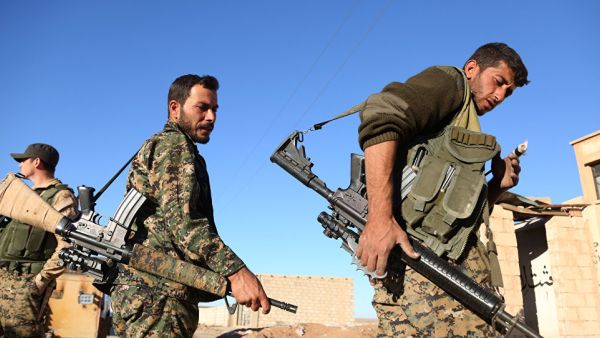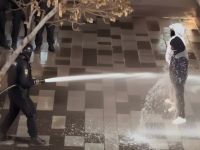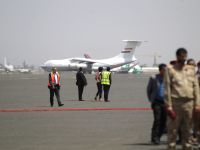Heavy clashes were taking place on Sunday north of al-Raqqa, Daesh's de facto capital in Syria, a monitoring group said, after Kurdish-led forces announced the start of a long-awaited campaign to capture the city.
The Kurdish-led Syrian Democratic Forces (SDF) captured several frontline villages and farms about 45 kilometres north of al-Raqqa, while warplanes buzzed the area and targeted jihadist positions, the Syrian Observatory for Human Rights said.
Daesh, via its Amaq Agency media outlet, claimed to have killed 14 Kurdish fighters in a suicide car bomb attack on a checkpoint in the area.
The Kurds said they had destroyed two car bombs, but a source close to the SDF, who asked not to be quoted by name, said that an unspecified number of SDF fighters had been killed in the attack.
Hours earlier, SDF commanders announced the move on al-Raqqa - which comes as Iraqi forces push into the organization's Iraqi stronghold of Mosul - and said it was being conducted in coordination with the US-led air coalition against Islamic State.
Around 80 per cent of those participating in the so-called Euphrates Anger operation are civilians from al-Raqqa, the commanders added.
The Kurdish lead in the battle for mainly Arab al-Raqqa may be a flashpoint both for local residents and for neighbouring Turkey, a fierce opponent of the Syrian Kurds which itself hopes to play a role in capturing the north-eastern city.
"We confirm... that the Euphrates Anger operation will move firmly until it achieves its aim of isolating and then bringing down the capital of global terrorism," an SDF spokeswoman said.
"We call on our steadfast people [in al-Raqqa] to steer clear of the enemy 's positions that will be the target of fire from the liberation forces and alliance," spokeswoman Jihan Sheikh Ahmed, clad in combat fatigues, said at a press conference in Ein Issa near the front lines.
Al-Raqqa in north-eastern Syria has been under Daesh control since 2014.
The SDF includes Arabs and other ethnic groups, but it is effectively led by the powerful Kurdish People's Protection Units, who have seized swathes of northern Syria from Daesh since defeating the extremist militants in the border town of Kobane early last year.
The SDF previously announced a campaign to capture the countryside north of al-Raqqa in May, but that appeared to have been a feint.
That time, after a couple of days of minor clashes, the Kurdish-led forces instead launched a major assault on the strategic town of Minbij, lying between al-Raqqa and the Turkish border, which they captured in August after heavy fighting.
That prompted an intervention by Turkey, which moved allied Syrian rebels into northern Syria to capture the last Daesh-held stretch of the border.
Ankara said that its operations were aimed at both Daesh and the Kurds, whom it denounces as 'terrorists' because of their links with Kurdistan Workers' Party (PKK) rebels in Turkey.
Turkish President Recep Tayyip Erdogan has said his forces will be the ones to move on al-Raqqa.
US Defence Secretary Ashton Carter on Friday said that Washington was still talking to Ankara about "the final seizure of Raqqa ... and a possible role for Turkey in that further down the road."
The campaign for al-Raqqa comes amid a US-backed onslaught by Iraqi forces to dislodge Daesh from its key stronghold in Mosul, Iraq's second-largest city.
Since the start of this year Daesh has lost the western Iraqi cities of Ramadi and Fallujah, and Mosul and al-Raqqa are now the only major urban centres it fully controls.
Analysts say the loss of al-Raqqa and Mosul may push the group back into a rural insurgency, as well as leading it to focus more on high-casualty attacks such as those it has claimed in Baghdad, Paris and Brussels.
The jihadist organization, which used to focus its propaganda on its control of territory and implementation of its extreme version of Islamic law, has for months been preparing its supporters for the loss of its urban strongholds.
In May, its spokesman Abu Mohammed al-Adnani - since then killed, apparently in a US airstrike - said the group would not be defeated even if its enemies took Mosul, al-Raqqa, or its Libyan stronghold of Sirte.
By Ramadan Al-Fatash








